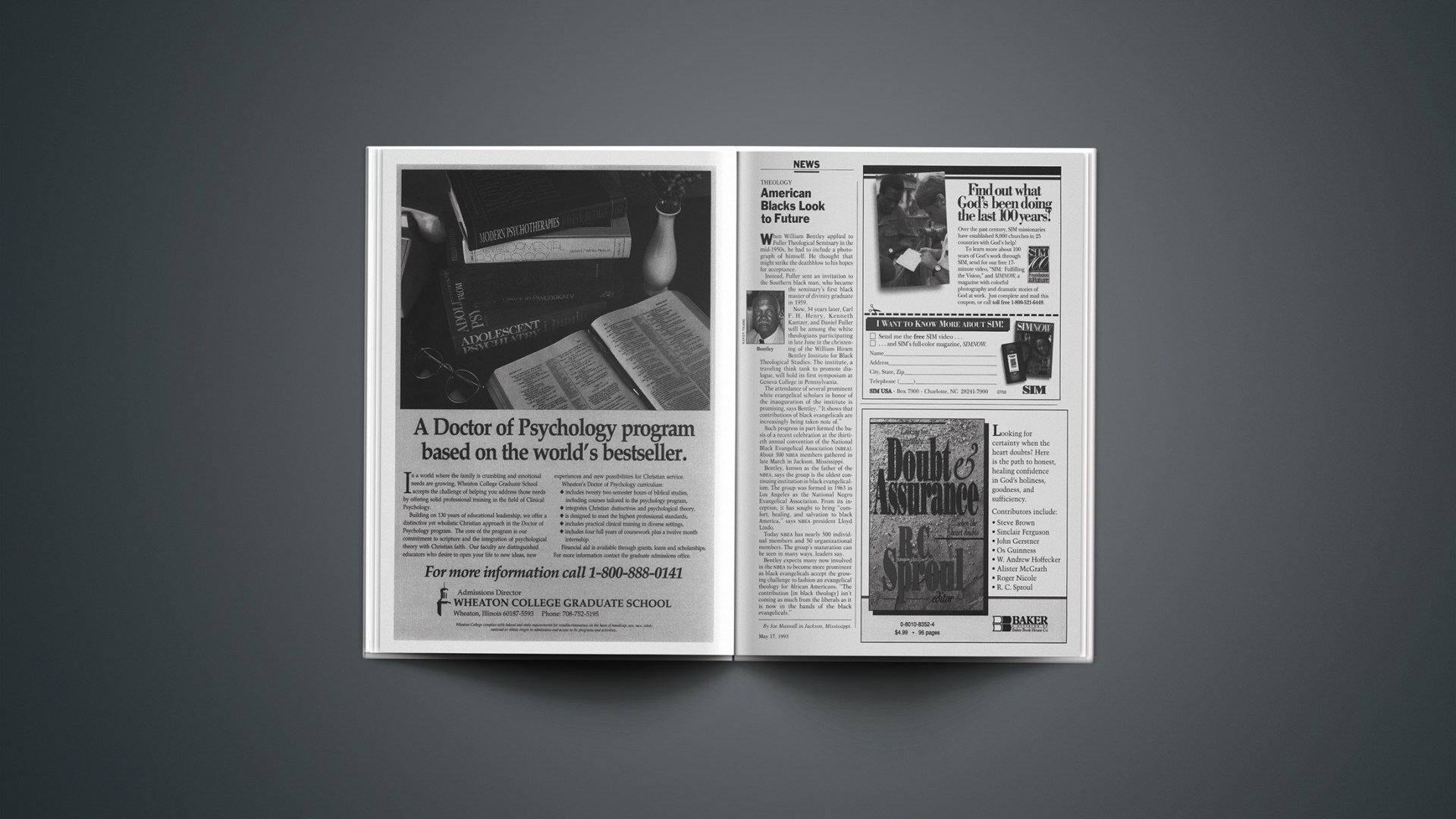When William Bentley applied to Fuller Theological Seminary in the mid-1950s, he had to include a photograph of himself. He thought that might strike the deathblow to his hopes for acceptance.
Instead, Fuller sent an invitation to the Southern black man, who became the seminary’s first black master of divinity graduate in 1959.
Now, 34 years later, Carl F. H. Henry, Kenneth Kantzer, and Daniel Fuller will be among the white theologians participating in late June in the christening of the William Hiram Bentley Institute for Black Theological Studies. The institute, a traveling think tank to promote dialogue, will hold its first symposium at Geneva College in Pennsylvania.
The attendance of several prominent white evangelical scholars in honor of the inauguration of the institute is promising, says Bentley. “It shows that contributions of black evangelicals are increasingly being taken note of.”
Such progress in part formed the basis of a recent celebration at the thirtieth annual convention of the National Black Evangelical Association (NBEA). About 300 NBEA members gathered in late March in Jackson, Mississippi.
Bentley, known as the father of the NBEA, says the group is the oldest continuing institution in black evangelicalism. The group was formed in 1963 in Los Angeles as the National Negro Evangelical Association. From its inception, it has sought to bring “comfort, healing, and salvation to black America,” says NBEA president Lloyd Lindo.
Today NBEA has nearly 500 individual members and 50 organizational members. The group’s maturation can be seen in many ways, leaders say.
Bentley expects many now involved in the NBEA to become more prominent as black evangelicals accept the growing challenge to fashion an evangelical theology for African Americans. “The contribution [in black theology] isn’t coming as much from the liberals as it is now in the hands of the black evangelicals.”
By Joe Maxwell in Jackson, Mississippi.










